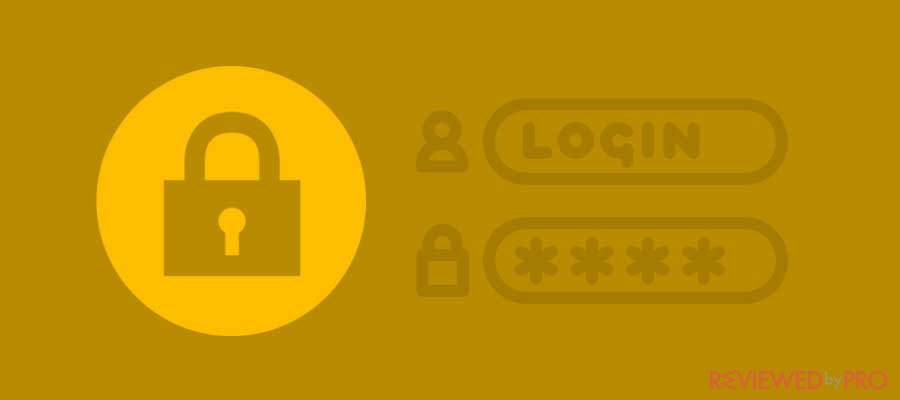
Nowadays, we all know how common cyber attacks are and that we can all become victims of one. No matter if it is just our personal mailbox or our bank account, we need to protect everything as well as possible. And the main factor in this is the passwords we are setting up. We might believe we are doing our best by following the most basic recommendations like capital letters, digits, and special signs. But is it enough? Let’s look over some other tips on how to stay safe.
Five tips on keeping your password safe
All of us have so many accounts online, and if you are honest, you are using the same password for at least a couple of them. But this can be a very high risk for you and your online security. For some accounts, we provide a lot of personal information like our names, addresses, and even payment information. This is why even an account you use for shopping online can be something a hacker can take an interest in. So, you shouldn’t underestimate any password you are setting up. Make sure you follow at least a couple of our tips to stay safe.
Use a VPN
VPNs are very useful when it comes to securing your online activity. VPNs will mask all of your activity and will make it very hard (even almost impossible) for hackers to get access to any information you have shared or used online. The greatest thing is that a VPN can be used on different devices like your computer, phone, tablet, and even smart TV.
The internet of things is becoming a bigger and bigger part of our lives. Imagine if someone could hack your coffee machine and get all your data. That doesn’t sound pleasant, right? But it is possible, and it often happens now, primarily through devices that we won’t even suspect can be used for this purpose.
For example, a FireStick is connected to your Amazon account, so if you have your card stored there, a person can access it and make some purchases on your behalf. This is why installing a free VPN for FireStick available online is more than a good idea. On top of the security features, you will have access to much more content! With a VPN, you can also change your location and, in this way, access content that is available only on Netflix UK or even geo-restricted apps.
A VPN will encrypt all your Internet traffic and activity, including your passwords. Like this, no one will be able to access your accounts and steal your personal information.
Don’t use the same password on all your accounts
It sounds like very basic advice, but still, many people do it. Yes, it is easier and so convenient but is not really secure. Imagine accessing your online shopping platforms with the same password to access your online banking. As you can probably imagine, the security of a shop that sells basic necessities is not investing as much insecurity as a bank. So, hacking a shopping account is relatively easy, and then the hacker will check if the password they got will work with all of your other accounts.
Especially if you are using the same computer for personal and professional use or the same password, try to use different passwords. For something that you use rarely or you don’t have a lot of personal information on the account, you might think you don’t need a highly secure password, but it is not true. Use complex passwords and different ones for all your accounts if possible.
Make your passwords very complex
You know the basics, and almost every site or software will ask you for capital letters, special characters, numbers, etc. But still, if you use a very basic password, even this won’t help you. For example, if you use your Hometown, birth date well, this is something that can be easily guessed. This is why you shouldn’t feel safe if you follow only the basic recommendations.
The best practice would be to use something very random that no one will think about. Of course, it should be something that you can remember but not something that even a starting hacker will be able to guess. An ideal choice would be to use a password randomized that will come up with a completely random password.
Change your passwords regularly
We set reminders for many things in our lives, so why not change passwords? Try to update most of your passwords a least five times per year. Don’t think that if a hacker gets your password, you will act immediately. Sometimes they wait some time to learn your habits and see how they can take advantage of your passwords. This is why if you regularly change your passwords, you might stop their attempt to abuse your accounts in the middle.
Use misspellings or made-up words
Some hackers are even lazier than usual, or maybe let’s say, smarter, and they don’t do a lot when hacking. What we are trying to say is that they will use bots. The bots will most of the time try random words and various combinations. But they will try only real words that can be found in dictionaries. So, if you use any misspells or made-up words that have some meaning only to you, this will make the work of the bot way harder.
Conclusion
Security is something we shouldn’t neglect. Even when you think there is no risk at all of using a very simple password for, let’s say, your application that you track your daily water intake, this isn’t true. Any website you use or any app you use can give access to a hacker to all your device information and, from there, your passwords and personal information. Be sure to use complex passwords everywhere, change them often, and use a VPN for an extra security level. Don’t think a cyber attack will ever happen to you as people say — better safe than sorry.




